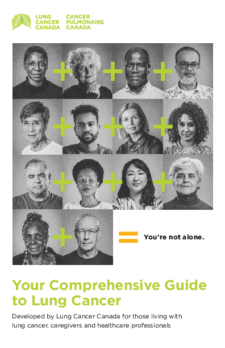Treatment
After the type and stage of your lung cancer have been determined, your medical team will develop a treatment plan. Your treatment will depend on several factors, including the type of lung cancer you have, its location, spread, and genetic makeup of the tumour. Your lung health and overall well-being also affect your treatment options. Your treatment plan is unique to you, and the goal is to achieve the best possible outcomes for your particular type and stage of lung cancer.
Cancer treatments are categorized into local and systemic:




